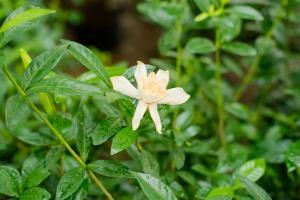Introduction
Plants have unique requirements that are essential for their growth, including proper lighting, nutrients, soil, and water. Talking about water, the temperature of the water that is being used to water the plants is vital in determining their growth rate. In this article, we will discuss how water temperature affects plant growth and the science behind it.
Effects of Water Temperature on Plant Growth
Water temperature can have a considerable impact on plant growth. Using water that is too cold or too hot can limit the plant's ability to absorb nutrients and water from the soil, negatively affecting its growth rate. Growing plants require a steady supply of nutrients and water to develop correctly, and water temperature plays a vital role in this process.
Studies have shown that exposure to a lower temperature can slow down the water absorption rate of plants, making them more susceptible to drought stress. This can affect the overall growth rate of the plant, leading to stunted growth, wilting, and reduced crop yield. The higher water temperatures can also have a detrimental effect on plant growth. When the water temperature is too high, the roots of the plant can get damaged, affecting their ability to absorb water and nutrients from the soil.
Plant Respiration and Water Temperature
Plant respiration is another process that involves water temperature. It's the process of breaking down nutrients to produce energy for growth, and water is vital in facilitating this process. The relationship between plant respiration and water temperature is direct.
When the water temperature is too low, it can make it more difficult for the plant to absorb oxygen, which is required for respiration. This can affect the metabolic processes inside the plant, leading to stunted growth and reduced crop yield. On the other hand, high water temperatures can speed up respiration, forcing the plant to expend more energy to keep up with the increased metabolic rate. This can lead to water shortages and even plant death under severe conditions.
The Optimal Water Temperature for Plant Growth
The optimal water temperature for plant growth is between 18 to 24 degrees Celsius. At this temperature range, plants can absorb water and nutrients most efficiently, leading to healthy growth and better crop yield.
Depending on the type of plant and its geographic location, the optimal water temperature can vary. For instance, plants that grow in cold climates may require water with lower temperatures than those found in tropical regions. It's essential to use the correct water temperature for each plant species to achieve optimal growth rates and reduce the risk of crop failure.
Conclusion
Water temperature plays a crucial role in plant growth, affecting its ability to absorb nutrients, water, and oxygen. The optimal water temperature for plant growth is between 18 to 24 degrees Celsius. It's essential to use the correct water temperature for each plant species to achieve optimal growth rates and reduce the risk of crop failure. Understanding the science behind water temperature and plant growth can help farmers and gardeners make informed decisions to grow healthy and productive plants.

 how many times do yo...
how many times do yo... how many planted tre...
how many planted tre... how many pine trees ...
how many pine trees ... how many pecan trees...
how many pecan trees... how many plants comp...
how many plants comp... how many plants can ...
how many plants can ... how many plants and ...
how many plants and ... how many pepper plan...
how many pepper plan...































